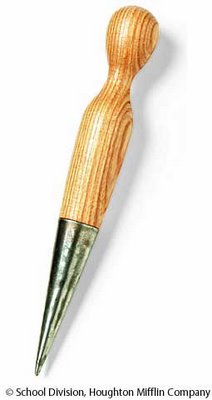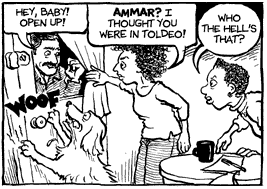Case In Point
I hope nobody expected me to finish that sentence. I don't do Top Ten lists. What we have today is a common, irritating grammatical mistake from, once again, The Consumerist, which is fun to read but desperately in need of an editor:
As we approach the New Year, let we consumers take a moment of quiet reflection to acknowledge that often we are as dumb as dirt.
I'm well aware, being in the retail field, that consumers are often as dumb as dirt, and I'm sure I'm as guilty of dirt-dumbness as the next consumer. I'm also well aware that the second pronoun in that sentence is wrong wrong wrong.
I could go into a long, instructive, schoolmarmish discussion about appositives and nominative versus objective pronouns, but it's the last day of the year, people have parties to get ready for, and who wants to read about that? So let me just say something I've said before: when in doubt, dismantle the sentence. Tear it apart like a racing bike. Strip it down to its bare essentials. The first half of the sentence is as follows: "As we approach, let us take...", and it's clear that the second pronoun has to be "us", not "we".
It doesn't matter that "consumers" follows the second pronoun: it doesn't matter one tiny bit. (For clarification, you could put the word in commas: "As we approach the new year, let us, [the] consumers, take....") What does matter is that the two clauses have different grammatical constructions and take different pronoun cases. If the sentence had been recast, the pronoun "we" could have been correct: "As we approach the new year, we consumers should take...." But putting that verb before the pronoun changes everything.
You don't have to be a professional grammarian to know how this; you just have to be able to get inside a sentence and feel if it's right or wrong. If you can't do this, why are you a writer? It's like being an auto mechanic and not being able to tell if the carburetor is installed upside down.







